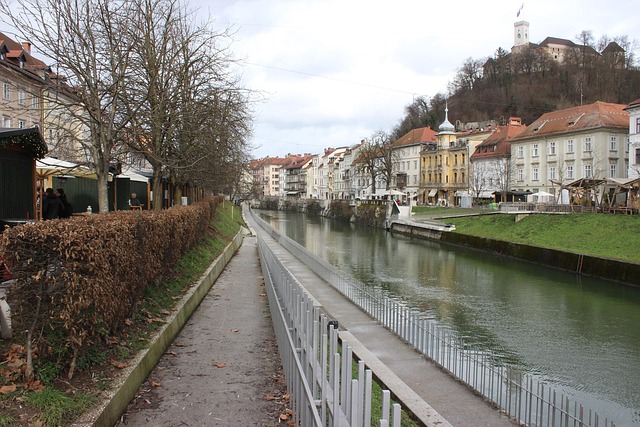Karachi, Pakistan's bustling metropolis, faces escalating water supply challenges in Shah Faisal Town due to rapid population growth, inadequate infrastructure, and climate variability. Dense urbanization and uneven water distribution networks create disparities. Rapid underground water table depletion threatens long-term sustainability. Comprehensive solutions involve infrastructure development, efficient water management through smart systems, community awareness campaigns for responsible water usage, and public-private partnerships to ensure a resilient and reliable water supply for the town's vibrant community.
Karachi, Pakistan’s bustling metropolis, faces unique water supply challenges in areas like Shah Faisal Town. This article explores the intricate web of water management in this vibrant community, delving into historical perspectives and current infrastructure. We analyze the evolving landscape, from traditional sources to modern innovations, while highlighting the crucial role of community engagement. By examining these aspects, we aim to provide insights into future-proofing Shah Faisal Town’s water supply, ensuring resilience amidst Karachi’s growing demands.
- Understanding Water Supply Challenges in Karachi's Shah Faisal Town
- Historical Perspective: How Has Water Management Evolved?
- Current State: Infrastructure and Resources
- Future-Proofing Water Supply: Innovative Solutions and Community Engagement
Understanding Water Supply Challenges in Karachi's Shah Faisal Town

Karachi, Pakistan’s bustling metropolis, faces unique water supply challenges, particularly in areas like Shah Faisal Town. With a population that continues to grow, the demand for clean and safe water outstrips the existing infrastructure, leading to frequent water shortages and poor pressure levels throughout the day. The diverse climate conditions, ranging from scorching summers to monsoon-like rains, further exacerbate these issues.
The complex geography of Shah Faisal Town adds another layer of difficulty. The area’s dense urbanization and lack of adequate water distribution networks result in uneven access to water supply. Moreover, the underground water tables, though abundant, are being rapidly depleted due to excessive extraction, creating a precarious balance that threatens long-term sustainability. Thus, addressing these challenges requires comprehensive planning, including investments in infrastructure development, efficient water management strategies, and promoting public awareness about responsible water usage.
Historical Perspective: How Has Water Management Evolved?

Water management in Karachi, particularly in Shah Faisal Town, has a rich historical perspective dating back to the city’s founding. Initially, the primary source of water was the network of natural canals and wells, which supplied residential areas and supported agriculture. Over time, as the population grew, so did the demand for water, leading to a need for more efficient management strategies.
The evolution of water supply systems in Karachi has been marked by significant milestones. The introduction of centralized water supply schemes during colonial times brought a semblance of order to water distribution. These early efforts were followed by the establishment of the Karachi Water Board, which played a pivotal role in modernizing water infrastructure. Today, the city relies on a combination of underground reservoirs, treatment plants, and imported water to meet the demands of its ever-growing population, reflecting a continuous adaptation and improvement in water management techniques.
Current State: Infrastructure and Resources

In Karachi, particularly in Shah Faisal Town, the current state of water supply infrastructure is a critical aspect to understand. The network of pipes and treatment plants that form the backbone of this essential service are both aging and, in some areas, inadequately maintained. This has led to frequent disruptions in water flow and quality issues. Despite these challenges, the city’s water supply remains a priority for local authorities, with ongoing efforts to modernize and expand the existing infrastructure.
The resources available for water supply management in Shah Faisal Town are both varied and limited. While Karachi’s Water and Sanitation Authority (KWSA) plays a pivotal role in maintaining and improving the system, financial constraints and rapid urbanization present significant hurdles. Efforts to enhance water distribution efficiency through advanced technologies and innovative solutions are underway, reflecting a commitment to address the current state of affairs and ensure a more reliable and sustainable water supply for residents of this vibrant part of Karachi.
Future-Proofing Water Supply: Innovative Solutions and Community Engagement

To future-proof water supply in Shah Faisal Town, Karachi, innovative solutions are essential. This includes implementing smart water management systems that leverage technology to optimize distribution and reduce waste. For instance, advanced leak detection sensors can identify and repair pipes before water is wasted, while real-time data analytics can predict demand patterns, ensuring efficient storage and allocation.
Community engagement plays a pivotal role in this process. Educating residents on water conservation practices, promoting responsible usage, and encouraging feedback fosters a collaborative environment. Public-private partnerships can drive the adoption of sustainable technologies, while community initiatives can enhance local knowledge and ownership. Together, these efforts can ensure a resilient and reliable water supply for Shah Faisal Town well into the future.
Karachi’s Shah Faisal Town, with its growing population, faces unique water supply challenges. By understanding historical perspectives and current infrastructure, we can innovative solutions like community engagement and smart water management techniques. These efforts are crucial to ensure a sustainable and reliable water supply for the future, addressing the evolving needs of the vibrant city of Karachi.
